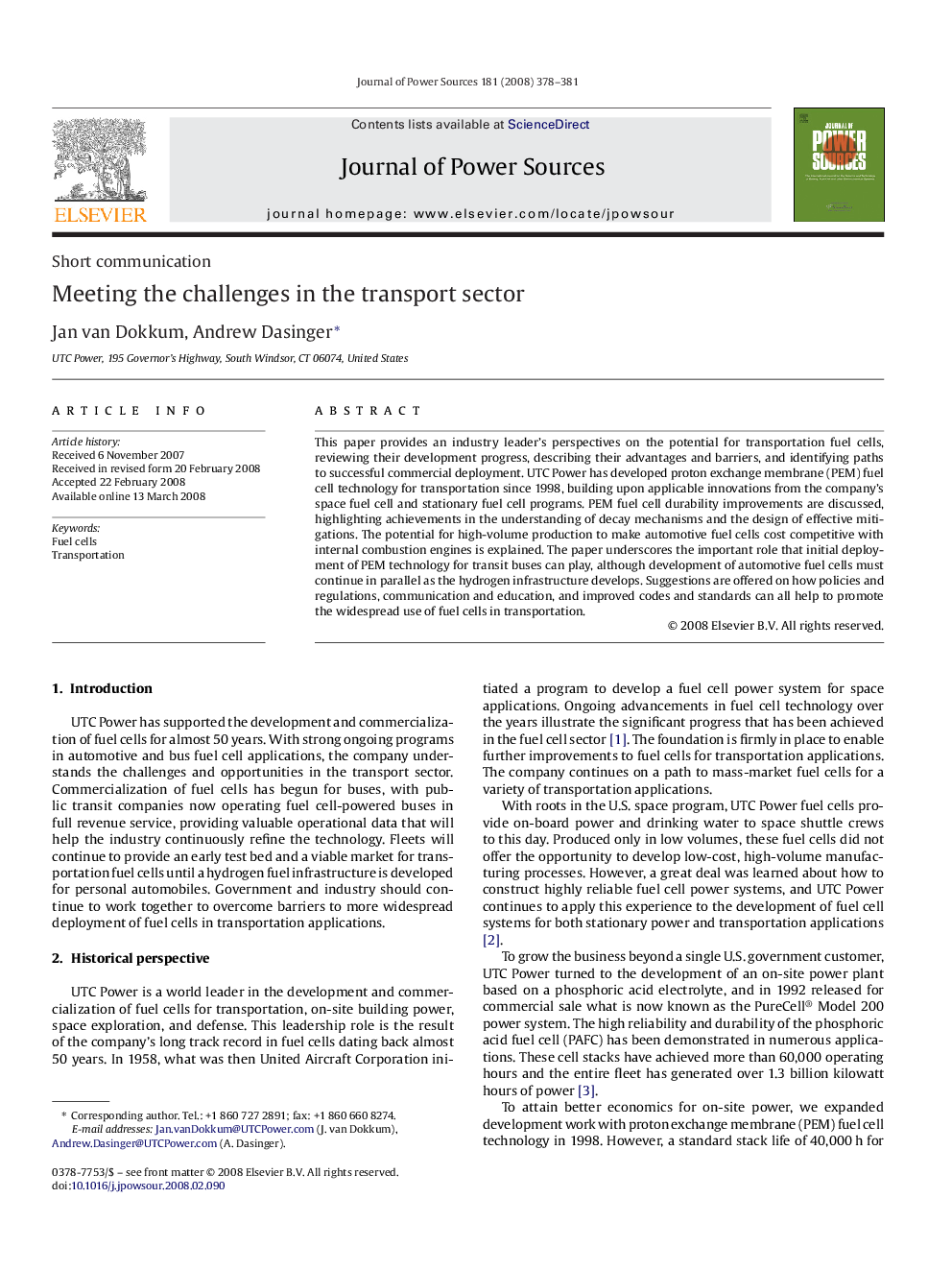| Article ID | Journal | Published Year | Pages | File Type |
|---|---|---|---|---|
| 1294659 | Journal of Power Sources | 2008 | 4 Pages |
Abstract
This paper provides an industry leader's perspectives on the potential for transportation fuel cells, reviewing their development progress, describing their advantages and barriers, and identifying paths to successful commercial deployment. UTC Power has developed proton exchange membrane (PEM) fuel cell technology for transportation since 1998, building upon applicable innovations from the company's space fuel cell and stationary fuel cell programs. PEM fuel cell durability improvements are discussed, highlighting achievements in the understanding of decay mechanisms and the design of effective mitigations. The potential for high-volume production to make automotive fuel cells cost competitive with internal combustion engines is explained. The paper underscores the important role that initial deployment of PEM technology for transit buses can play, although development of automotive fuel cells must continue in parallel as the hydrogen infrastructure develops. Suggestions are offered on how policies and regulations, communication and education, and improved codes and standards can all help to promote the widespread use of fuel cells in transportation.
Keywords
Related Topics
Physical Sciences and Engineering
Chemistry
Electrochemistry
Authors
Jan van Dokkum, Andrew Dasinger,
